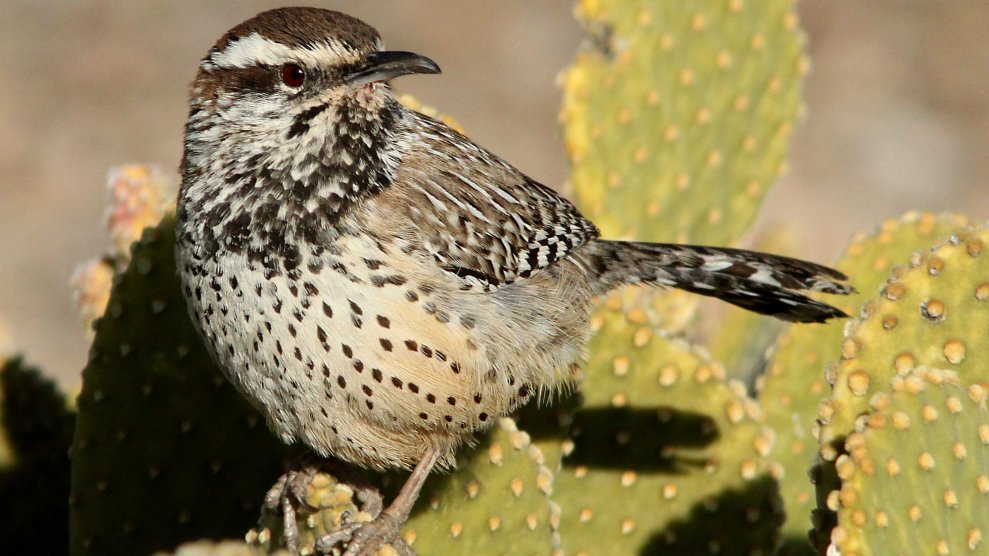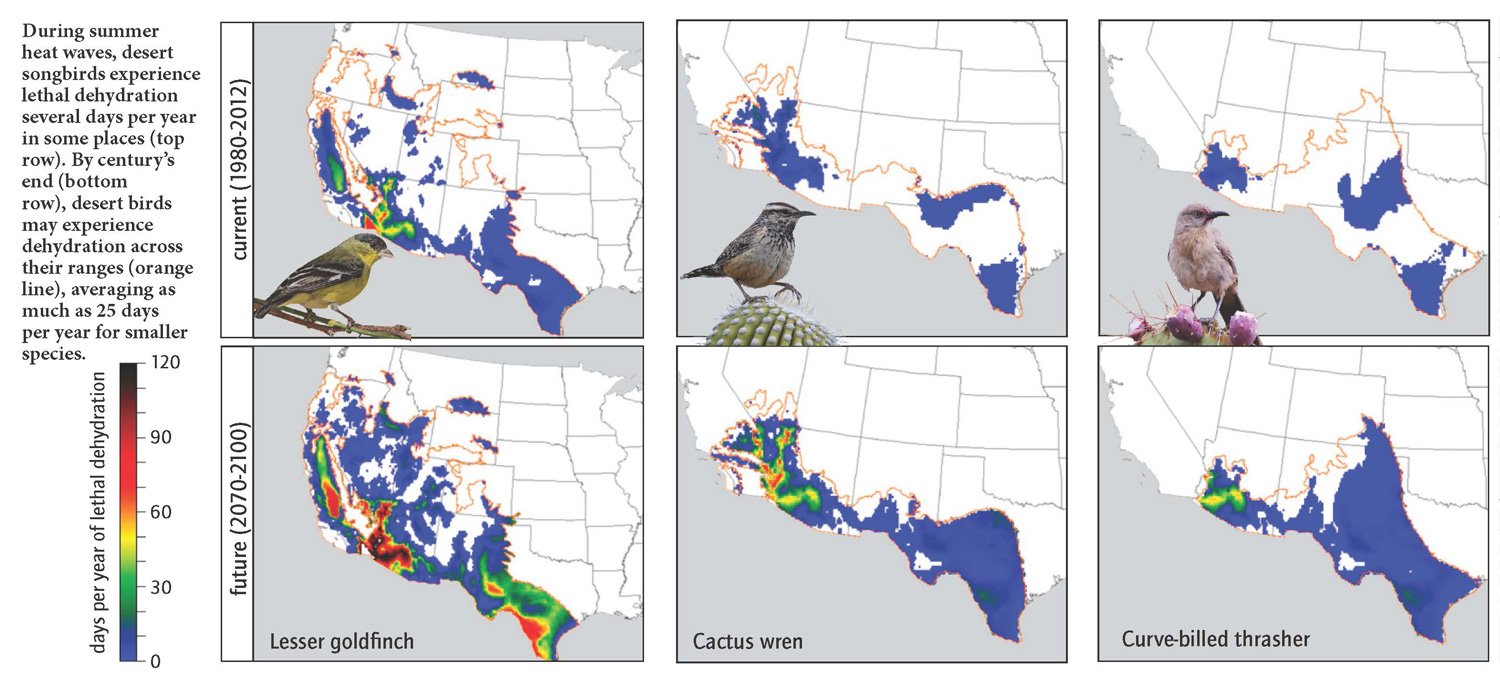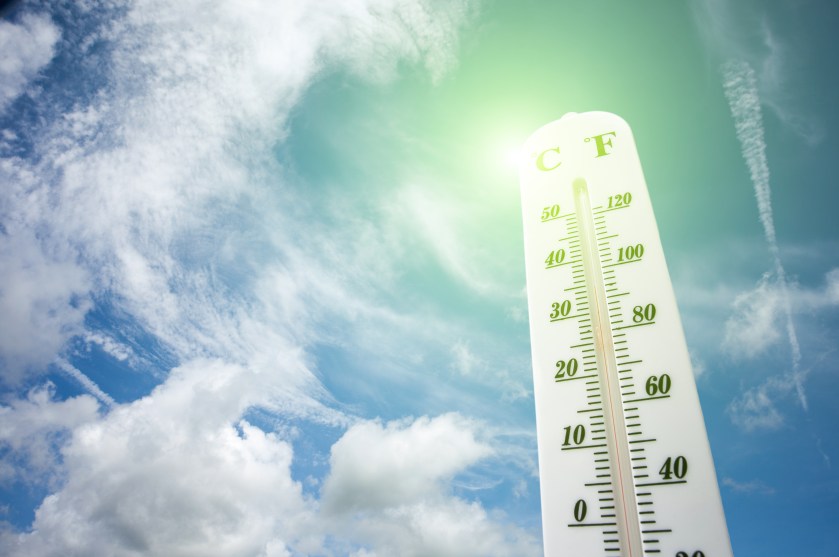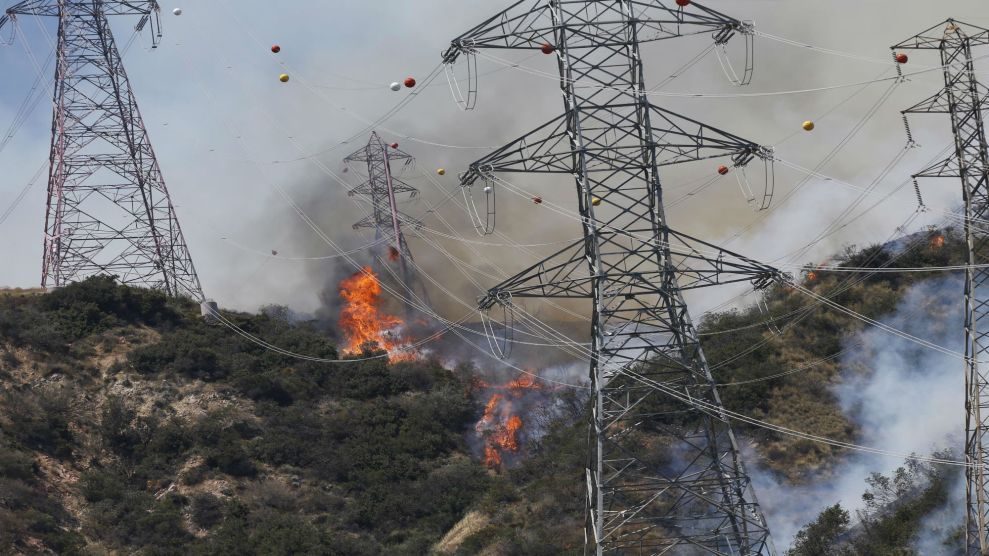
Alan Schmierer/Flickr
This story was originally published by High Country News and appears here as part of the Climate Desk collaboration.
Because of human caused climate change, the desert Southwest’s heat waves are projected to become more frequent, intense and widespread. According to recent research, this may take a deadly toll on songbirds by century’s end. Songbirds don’t sweat, but because they pant when they’re hot, they still lose water staying cool. During heat waves, birds can lose so much water trying not to overheat that they die of dehydration. Most animals can’t survive losing more than 15 percent of their body mass to dehydration.

Based on climate projections for the Southwest, small birds such as the lesser goldfinch may face lethal dehydration on average 25 days per year by the end of the century. Larger songbirds, such as curve-billed thrashers and Abert’s towhees, lose water at a lower rate, so they won’t be as vulnerable to dehydration until temperatures get much higher. But even bigger birds face risks: For some, small ranges restrict them to hot deserts and unpredictable water sources. Birds spend the hottest parts of the day seeking shelter in cool hideouts, making havens such as mountains, trees and shaded washes increasingly important.








